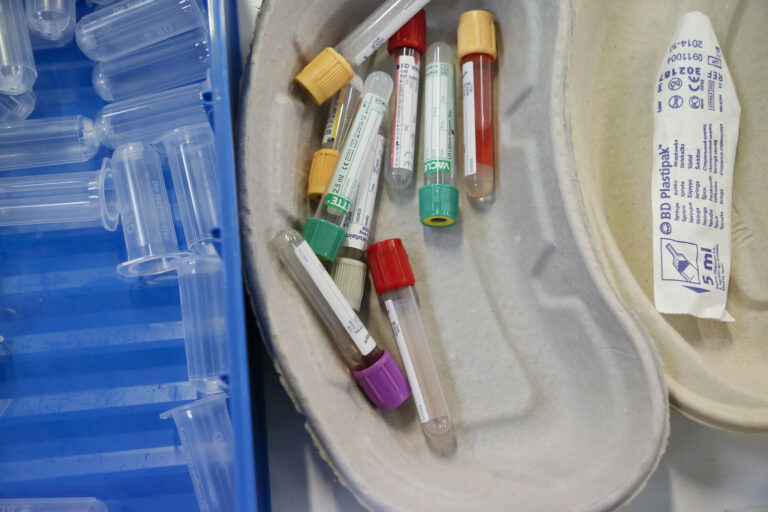Overpriced drugs developed with tax money
Research shows major Dutch public investment in drug development
Overpriced, a report published today jointly by SOMO and Wemos examines the extent of Dutch public funding of drug development, through donations, loans and/or investments. This funding occurs both directly by financing development of new medicines, and indirectly through investments made into biotech companies, but channelled through universities, public research bodies, and national and regional investment funds. The report reveals, however, that because no conditions are set on these investments, the Government loses its chance to curb subsequent high drug prices. Recent research in United Kingdom and Spain has uncovered a similar pattern of public funding and drug development. In Overpriced, SOMO and Wemos argue the need for European legislation to ensure affordable medicines and a public return on public investment.
Esther de Haan (Senior Researcher, SOMO): ’Pharmaceutical companies argue that the reason their drugs are so expensive is because research and development is expensive, but this is simply not true. Much of the cost of research and development is borne by unconditional public investment. Because of this, the Government loses its chance to influence drug pricing’.
For this report, SOMO, in collaboration with Wemos, investigated the level of direct and indirect public investment into drug research and development. The compelling evidence comes from desk research, interviews with experts. and detailed examination of case studies.
Public money invested in medicine research and development
In addition to funding fundamental research conducted by universities, national and regional governments also invest heavily in start-upand spin-off biotech companies (companies founded by researchers wanting to commercially develop promising scientific findings). This public capital is often invested in these businesses and companies at their initial development phase when the risk of failure is high. Large private investors usually begin investing later on in the company’s ‘life-cycle’ when the medicine looks more promising and the risk to investors is therefore lower. These private investors then make a huge profit by selling their shares at a high price to other companies in? the pharmaceutical industry.
Ella Weggen (Global Health Advocate, Wemos): “In effect, the public pays twice for medicines; once via their health insurance premiums and then again through their taxes. This happens even though the evidence demonstrates that there is insufficient public return on these investments to justify the practice?. Moreover, as this report shows, some medicines developed with taxpayers’ money are sold on the market at exorbitantly high prices, undermining the principle of equal access to medicines and, therefore, threatening public health.’
No transparency and criteria for investment
Because information on public contribution to drug development via investment funds is not publicly available, it is difficult to ascertain the level of these investments. In addition, no criteria are set for such financing, because investors believe that this would have a negative effect impact on their investment return.
Ella Weggen: “There can only be great tension between one government policy that promotes economic growth, and another that aims to keep medicines (and therefore healthcare) affordable. To ensure that public health always remains the priority, action is not only needed in The Netherlands, but also at European level. We recommend that the EU introduces laws to ensure that all public investment into drug development are transparent and insists that conditions are attached to any public funding of biomedical research and development, so that people can benefit from, and afford?, medicines developed with their money.”
Do you need more information?
-

Irene Schipper
Senior Researcher
Partners
Related news
-
 EU health data law rolls out the red carpet for Big TechPosted in category:Long read
EU health data law rolls out the red carpet for Big TechPosted in category:Long read Irene SchipperPublished on:
Irene SchipperPublished on: -
Civil society coalition urges EU to put the interests of patients and citizens at the heart of the European Health Data SpacePosted in category:Published on:Statement
-




